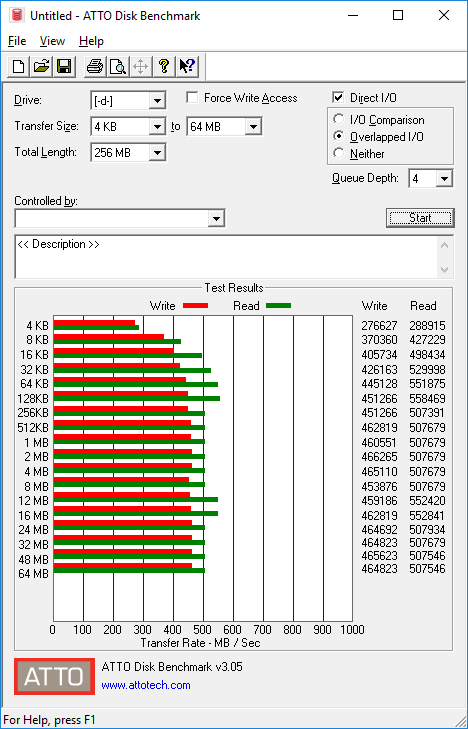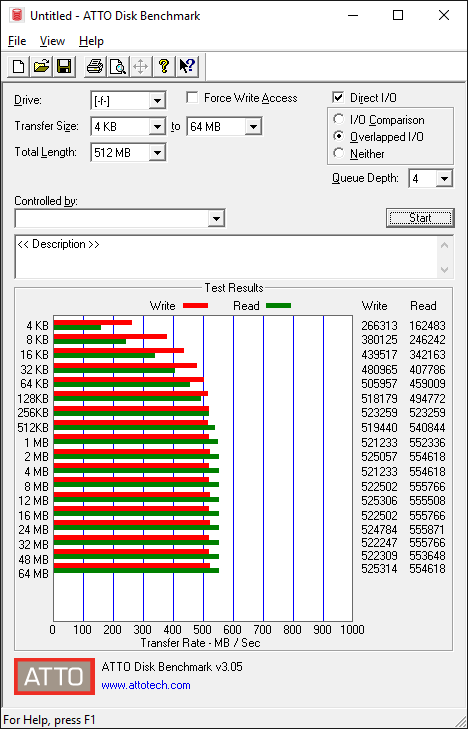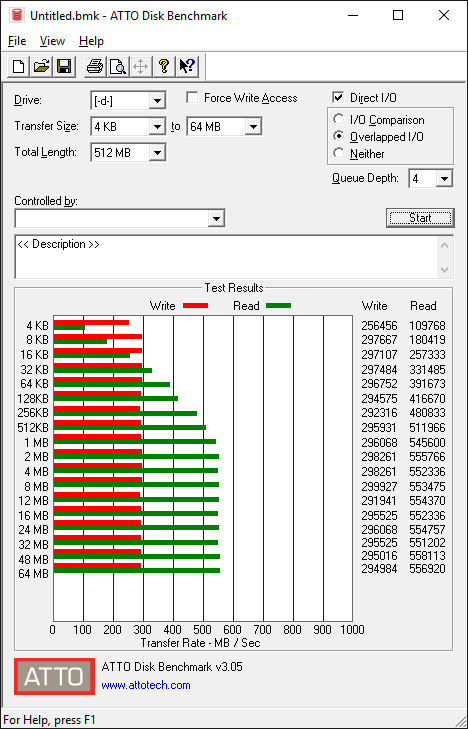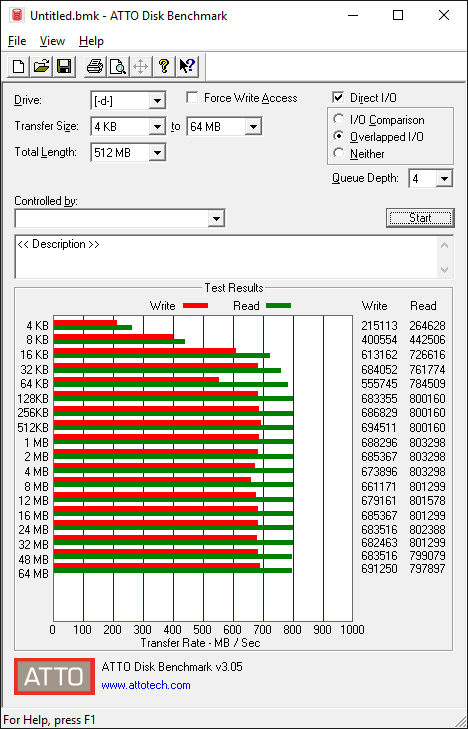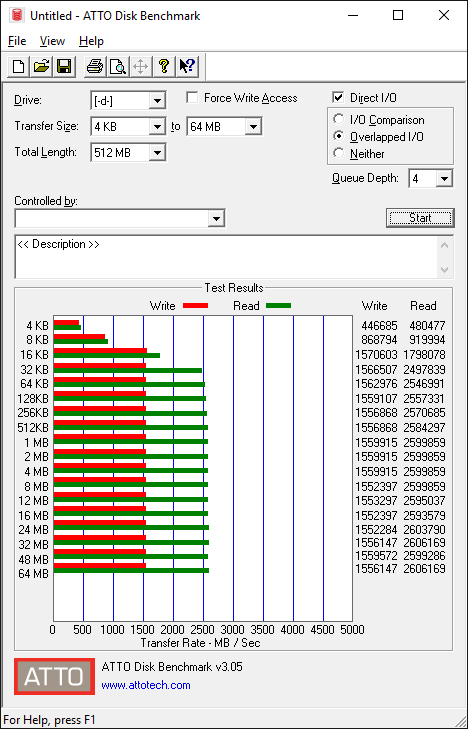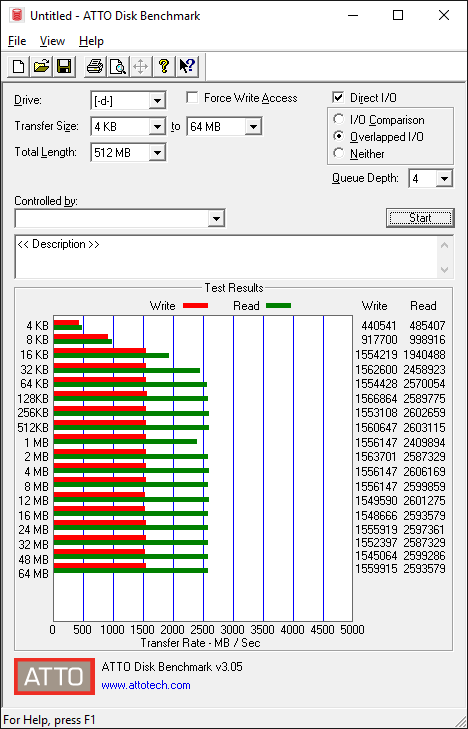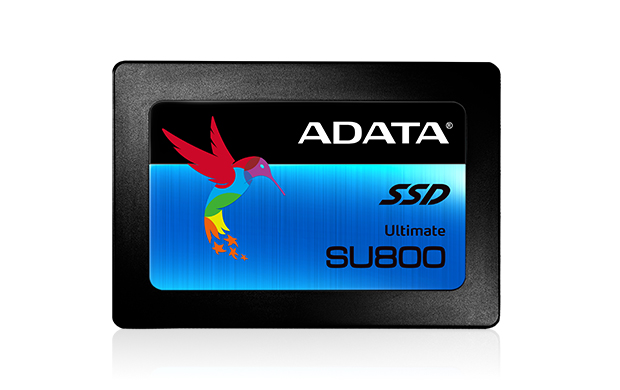- Qualcomm Launches Snapdragon 4 Gen 2 Mobile Platform
- AMD Launches Ryzen PRO 7000 Series Mobile & Desktop Platform
- Intel Launches Sleek Single-Slot Arc Pro A60 Workstation Graphics Card
- NVIDIA Announces Latest Ada Lovelace Additions: GeForce RTX 4060 Ti & RTX 4060
- Maxon Redshift With AMD Radeon GPU Rendering Support Now Available
ADATA Ultimate SU800 512GB SSD Review
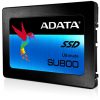
ADATA is a well-known flash storage company that offers the most prolific range of SSD models currently available on the market. While this makes it hard to determine which SSD is best for you, it also guarantees there’s a model at practically every price point. Is the midrange SU800 that offers better endurance and performance consistency worth the increase in price over budget models? We find out.
Page 3 – ATTO, Robocopy, dBpoweramp & Final Thoughts
ATTO
ADATA’s SU800 performs well here, averaging over 500MB/s in writes across the tests. In contrast the 370S and SP550 averaged in the mid-to-upper 400MB/s range.
RAMDrive Robocopy
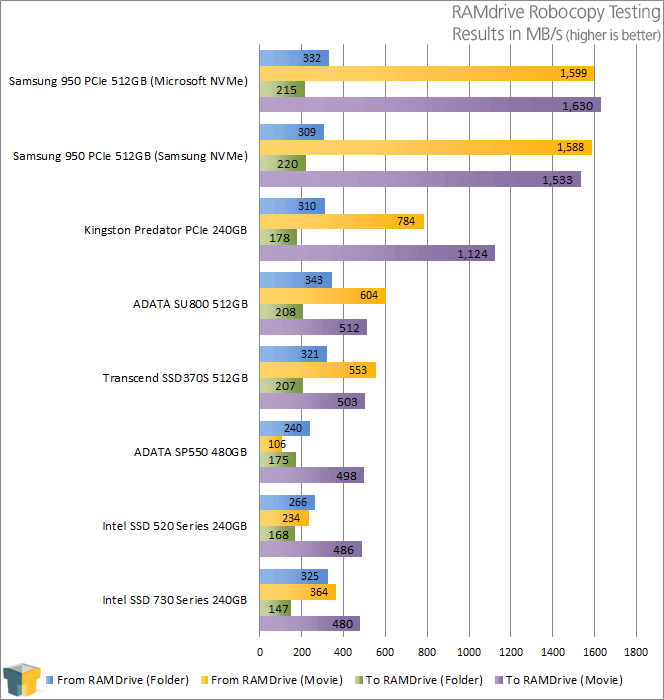
Robocopy gives us some valuable real-world usage over synthetic tests, and immediately we can see why this is important. The movie file is roughly 10GB which easily exceeds the fast write-cache of the SP550 as demonstrated by the stark difference in results between both ADATA drives. The SU800 performs better in every metric, adding justification to its higher price. Interestingly, the drive just barely edges out the 370S in every test as well, making it the top performing SATA drive in these tests.
dBpoweramp
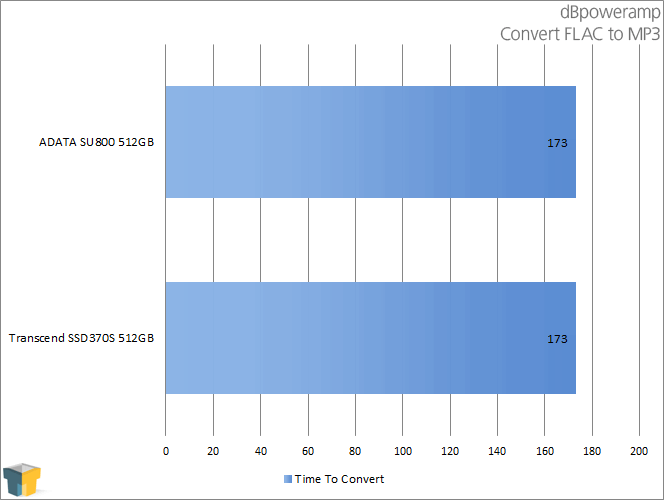
In this test we remain CPU bound with a quad-core 8-thread processor. After an odd unexplained discrepancy in subsequent testing, we’ve been forced to throw out the other drive results which doesn’t leave us with much to show here. Alas we remain entirely CPU bound for this test and will probably drop it from future testing.
Final Thoughts
The SU800 is a tricky drive. For starters the 128GB model simply does not have enough flash chips on the drive to extract much parallelism from the controller. This is not a problem for the 512GB (or 256GB) model, but it is something consumers should be aware of if they are looking for a smaller capacity drive.
ADATA has also created a great many closely related models, but overall the SU800 outperforms the SP550 in our battery of tests. The newer SP580 does not appear to come in a ~500GB capacity either, simplifying things somewhat. While synthetic tests tend to default to small file sizes that easily fit within the SP550’s 8GB SLC cache buffer, every time we came to a workload that exceeded 8GB or a workload with sustained reads and writes, the SU800 came out on top.
ADATA’s SP550 with its 8GB fast-write cache, is aimed and optimized purely for casual use. In comparison, the SU800 offers slightly more performance and the ability to handle moderately demanding workloads and even sustained workloads, but it is considered to be a midrange drive overall. It also costs $10-20 more on average, and providing slightly better performance, more capacity, and better endurance than it’s 480GB SP550 cousin.
The SP550 appears to be in the process of being phased out, as both Amazon and Newegg have begun selling the SU800 for less than the budget SP550 by a wide margin. With the SU800 selling for $0.26 per GB (as of this writing) it becomes an easy recommendation in general, but especially so over the SP550 series. Still, even if prices go back to the way they were, $10-20 isn’t that much of a premium given the extra 32GB of rated capacity (480 vs 512GB) and edge in performance anyway.
No review would be complete without discussing the next higher option, but as the SU900 model generally runs a $50 premium over the SU800, it takes the SU900 well above the midrange category in terms of price ($0.41 per GB) and out of consideration. The SU800 generally lives up to the venerable old Intel 520 SSD in terms of performance, cementing it as a solid midrange value offering.
Support our efforts! With ad revenue at an all-time low for written websites, we're relying more than ever on reader support to help us continue putting so much effort into this type of content. You can support us by becoming a Patron, or by using our Amazon shopping affiliate links listed through our articles. Thanks for your support!






